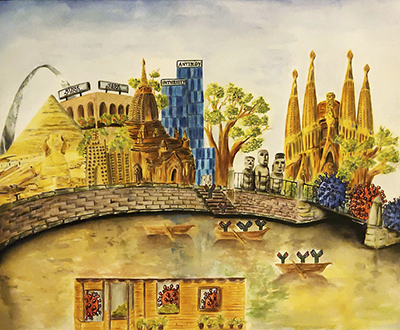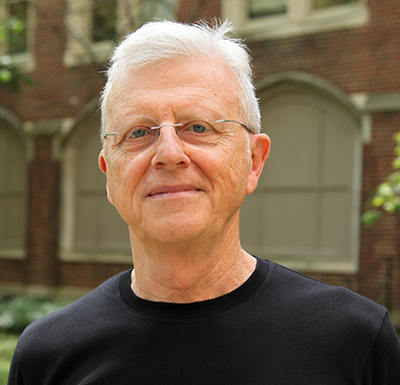Research, News & Discoveries
-

Spontaneous release of neurotransmitters in the brain identified as a culprit of developmental disorders in infants and children
by Marissa Shapiro Nov. 3, 2020, 12:00 PM Vanderbilt pharmacologists have reported the first evidence that aberrant spontaneous release of neurotransmitters in the brain can cause a range of severe intellectual and neurodevelopmental disorders in infants and children. Baris Alten (Baris Alten) Ege Kavalali… Read MoreNov. 5, 2020
-

Nancy Carrasco elected to the National Academy of Medicine
by Marissa Shapiro Nov. 4, 2020, 9:00 AM On Oct. 19, Nancy Carrasco, professor and chair of the Department of Molecular Physiology and Biophysics and the Joe C. Davis Chair of Biomedical Science, was elected to the National Academy of Medicine. The election process recognizes… Read MoreNov. 4, 2020
-

Jerri Rook is awarded the Alzheimer’s Drug Discovery Foundation’s prestigious Melvin R. Goodes prize
by Marissa Shapiro Nov. 2, 2020, 9:30 AM Vanderbilt University Assistant Professor of Pharmacology Jerri Rook has been recognized with the 2020 Melvin R. Goodes Prize for Excellence in Alzheimer’s Drug Discovery. Presented by the Alzheimer’s Drug Discovery Foundation, the prize recognizes leading researchers who… Read MoreNov. 2, 2020
-

Virtual conferences exist — but can you have poster sessions?
By Kendra H. Oliver Academic departments are busy places filled with faculty who deal with tight schedules, trainees who are occupied with completing their degrees, and staff members who try to manage the organized chaos. Everyone handles their individual life responsibilities alongside work, and this is particularly true during… Read MoreOct. 29, 2020
-

Histamine circuits in brain reward center
Oct. 29, 2020, 9:00 AM by Leigh MacMillan (iStock) The nucleus accumbens (NAc) is a brain region that integrates diverse inputs to coordinate motivated and reward-based behavior and has a role in addiction. Histamine-producing neurons innervate the NAc, but how histamine contributes to NAc neuronal circuits is undefined. Kevin Manz, PhD, a postdoctoral fellow in… Read MoreOct. 29, 2020
-

Grant helps expand VI4’s Artist-in-Residence program
Oct. 29, 2020, 10:01 AM by Leigh MacMillan An innovative Vanderbilt program that brings together scientists and artists with the shared goal of scientific communication is set to expand with support from a three-year grant from the Burroughs Wellcome Fund. For two summers, the Vanderbilt Institute for Infection, Immunology… Read MoreOct. 29, 2020
-

Vanderbilt biochemists reveal the cause of Charcot-Marie-Tooth disease—too much of a good thing
by Marissa Shapiro Oct. 27, 2020, 9:00 AM Vanderbilt researchers—including Charles Sanders, associate dean for research and professor of biochemistry, and graduate student Justin Marinko—have illuminated the cause of Charcot-Marie-Tooth disease, putting them on the road to developing therapeutic approaches for the disease that… Read MoreOct. 28, 2020
-

New faculty Rick Sando: A better understanding of brain circuitry
Oct. 26, 2020, 2:30 PM MyVU is spotlighting a select group of new faculty for 2020-21. Read more profiles in the series. By Lorena Infante Lara Our brains function thanks to billions of connections between neurons firing off at the right time and in the right… Read MoreOct. 28, 2020
-

Breann Brown featured in ASMBMTODAY
Mixing mitochondrial biology, mentoring — and doughnuts Breann Brown works to be honest about the Black experience in academia without scaring talented students away from science. By Leia Dwyer October 19, 2020 The phrase “the mitochondria is the powerhouse of the cell” has a jokey reputation in American education as… Read MoreOct. 22, 2020
-

Interdisciplinary melanoma research brings understanding of cellular resistance to cancer treatment, opening doors to new cures
by Marissa Shapiro Oct. 21, 2020, 12:00 PM A Vanderbilt cancer systems biology team has identified the enzymes that keep tumor cells growing in the presence of drug treatment, opening the door to stopping these cells dead in their tracks. An article, “An… Read MoreOct. 22, 2020